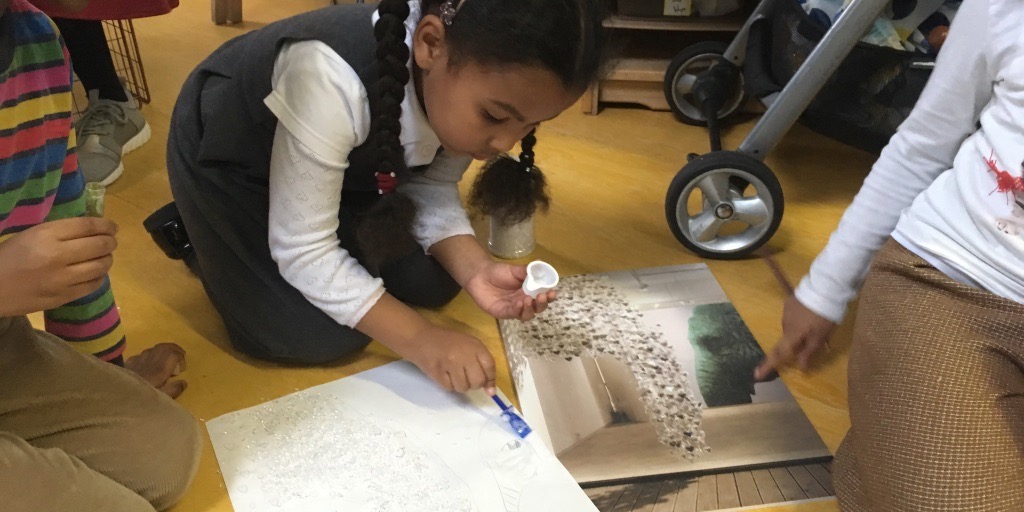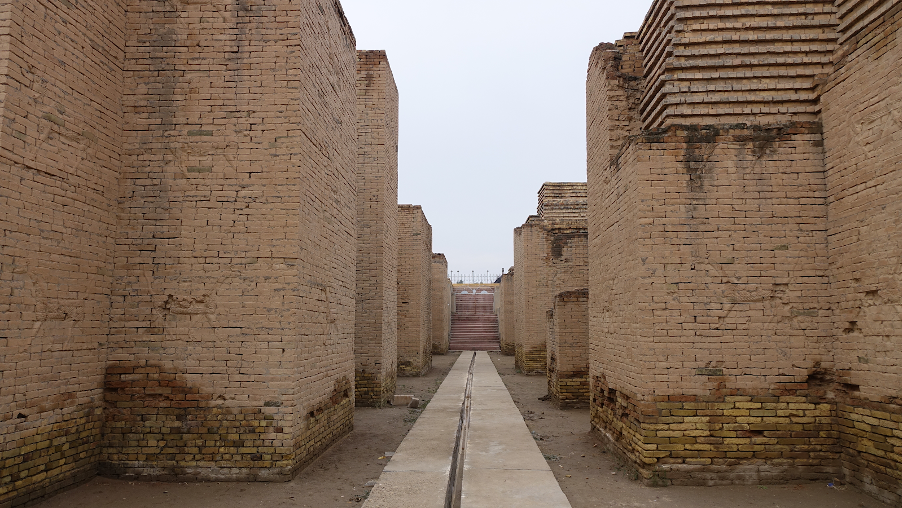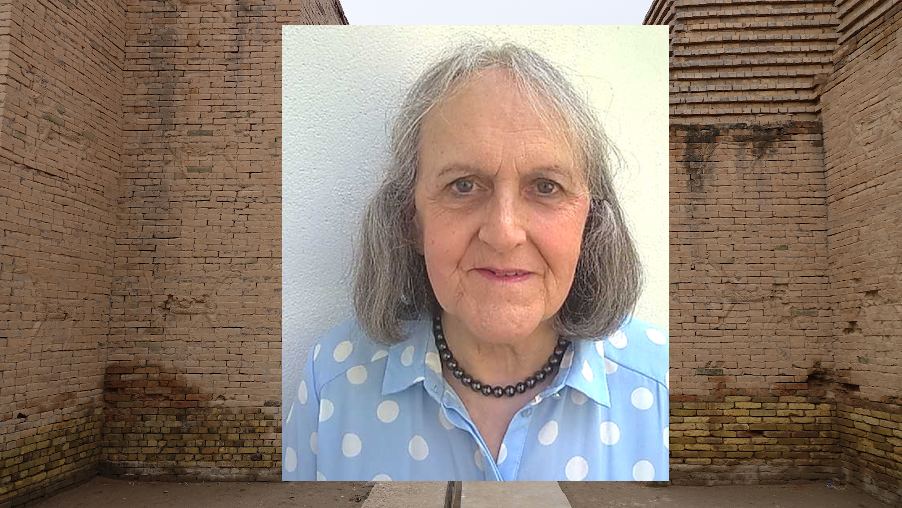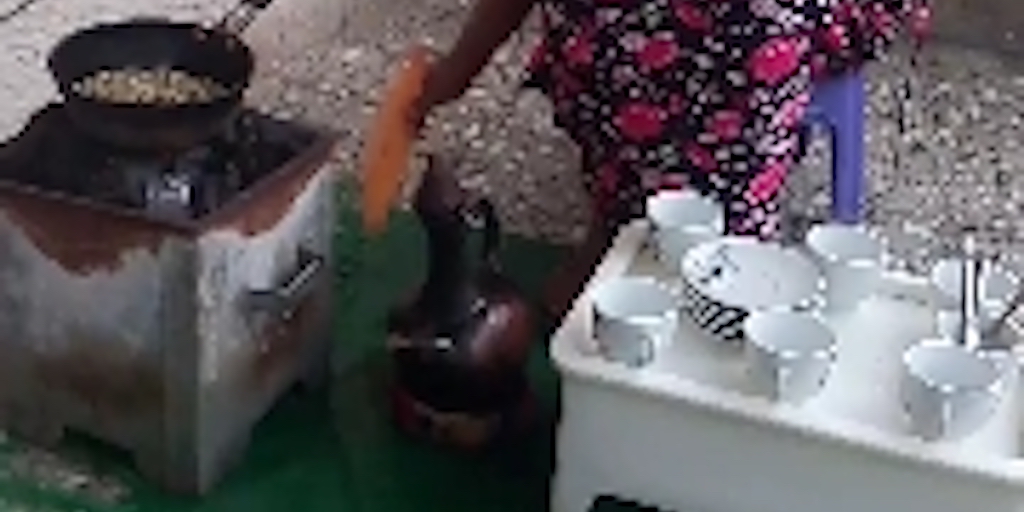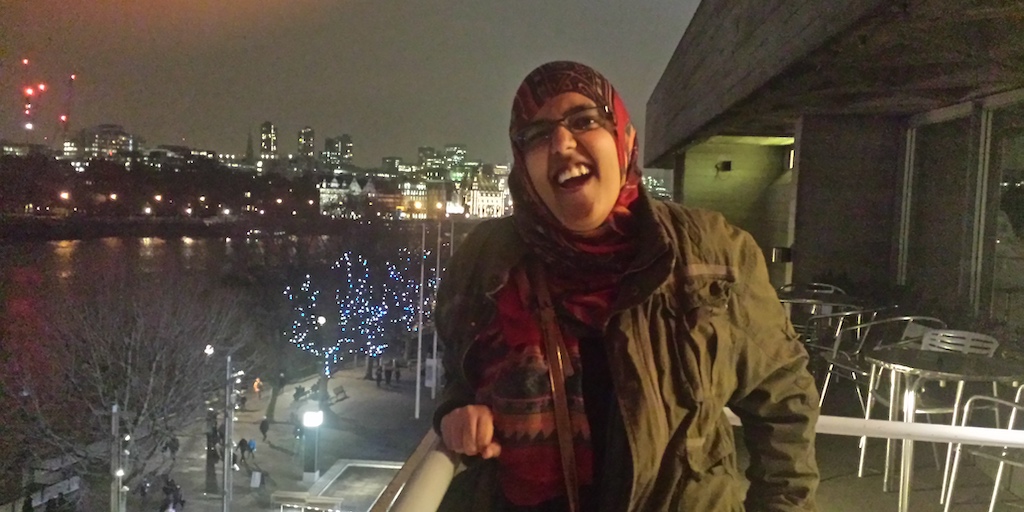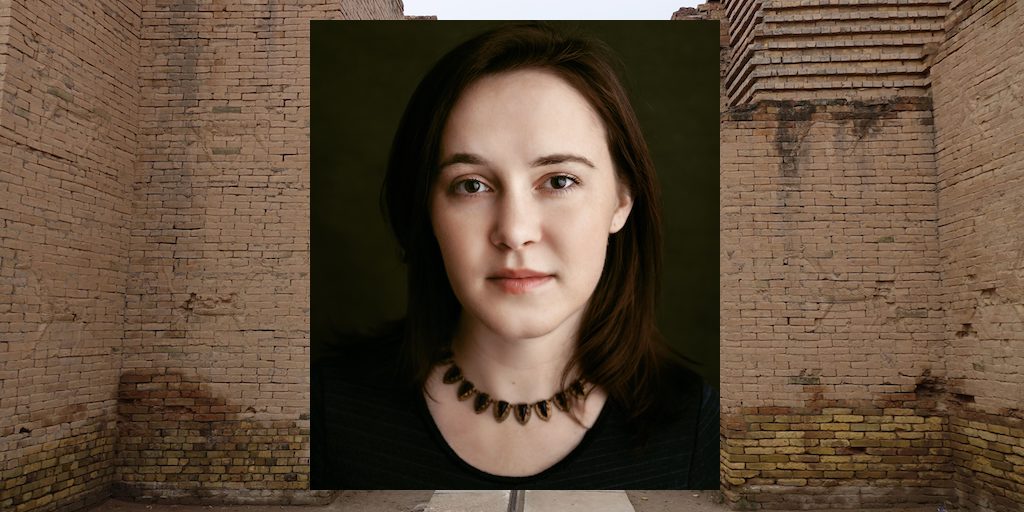Babylon: Beyond Borders
Bush Theatre, Shepherd’s Bush, 2019
Header image: Detail showing Marduk (god), the most important god in ancient Babylon. Babylon 2017, by Mouayad Sary.
Babylon Beyond Borders: a celebration of London, home, Babylon
In February 2019 four theatres in New York, Johannesburg, São Paolo and London staged Babylon: Beyond Borders, a live-streamed performance across continents, languages and time zones directed by Ruthie Osterman. The collaboration included local community members as well as professional actors in its casts.
Each theatre was located near a tower which had been the centre of a significant event: The Bush Theatre, London, near Grenfell, site of a fire in 2018; Harlem Stage in New York; Pequeno Ato in São Paolo; and Market Theatre Lab in Johannesburg, creating an international connection in the present, and linked to the past by exploring the Tower of Babel mythology which gives the production its name.
The historical Babylon, situated in modern-day Iraq, features in the Old Testament story in Genesis, where the world’s citizens come together to build a city in which is the Tower of Babel. They cooperate through a common language, which God destroys along with the Tower, shattering their one language into many, so that the human race can no longer understand each other. The story gives a root to linguistic diversity, celebrated in the performance of Babylon: Beyond Borders.
Maureen Duffy, London writer, King’s Fellow, alumna and firm inhabitant of the Strand, uses the theme of the Tower of Babel in her poem Mother Tongue ((2018); published in Maureen Duffy, Wanderer, Pottery Press, London, 2020). She uses the image of Babel to lament the loss of linguistic diversity in the London dialect she grew up speaking. Now, the language we hear most loudly in London is the language of capitalism, a ‘Lingua Anglika’ of ‘Global Chatter’ - product and facilitator of globalisation, reminder of empire - that has emerged at the expense of its own richness as well as the numerous indigenous languages being lost as people instead use English to understand each other and transact worldwide. In the London of the 1930s and 40s in which Maureen grew up, the ‘rainbow colours of other lands’ brought words such as ‘burgoo’ and ‘brahma’ from India, and ‘weevil costin’, a Jewish phrase, into Londoners’ vocabularies. Maureen puts these words to use in her poem, reminding us that many languages need not be sacrificed for one. Instead, we can exchange and celebrate our own language and each others’, and enrich our common understanding in doing so.
Now,
‘Instead, a glass, steel
and concrete babel has
sprouted hatespeech like
Funghi after rain, simplifying,
denuding of any original dress.’
The multilingual script of Babylon: Beyond Borders was devised using the many languages spoken by the cast members - London residents - interwoven with, rather than translated into, English. It recreated and reclaimed the lost language of London of Duffy’s poem, fulfilling her wish in Mother Tongue’s last stanza to hear many languages again in London’s ‘common tongue’, ‘daubing it with all the palette of the world / until it starts out again from the frame, vibrant / many coloured as the fruits and faces of London’s market stalls’.
King’s marked Maureen’s ‘world service’ to authors with an event in 2017. She has been instrumental in establishing the International Authors Forum (IAF), a worldwide network of writers’ and artists’ unions, working to protect authors’ rights, so authors can continue to work to conserve linguistic and cultural diversity through their expression in local languages and cultures.
At the event, the work of authors around the world was presented, including photographs by Iraqi documentary maker Mouayad Sary, which featured the historic site of Babylon. Babylon is part of his country’s heritage, a history and lineage now obscured from view by the images of war and destruction which dominate the representation of Iraq. Mouayad’s photographs are united by the idea that we all need a place to live, somewhere to make our home and something to believe in. The photographs tell that story, making Iraq visually hospitable, habitable and accessible, in a way that it cannot be, physically, to foreign visitors, or even to people for whom it is home today. Mouayad chooses to live in Sweden, where he can exercise his freedom as an artist. But his photography presents what still exists of Iraq’s history and diversity, and suggests hope for their sustenance.
The myth of Babylon helps explore shifts in people, languages, how we understand our feelings about home and our mother tongues from which so many are today voluntarily or forcibly uprooted. Mouayad, Maureen and Babylon: Beyond Borders use it in their art, to celebrate the diversity we find in the movement and cross-pollination of people and their languages, as well as heeding the dangers of steam rollering difference, of making everything the same, ‘homogenising / as if one language could make one people’.
Here on Strandlines we have preserved reflections and creative work by the members of the community chorus of Babylon: Beyond Borders, a group of 11 women living in London but of globally diverse heritages, languages and cultures. They explore the theme of home and how they feel about their identities in London. The crumbling of the Tower of Babel, as well as a catastrophic event, was also a release of languages, which, co-existing, perpetuate new connections, further embroider the tapestry of the world, continually renew, enrich, reinvent, link to and from the past. Lieve Carchon, Titlail Negussie Mekuria, Mediah Ahmed and Aubrey Seader write from London, and from home.
Katie Webb, Editor
'Instead of plain English we spoke coloured': Duffy, London, Babylon
Introduction by Katie Webb
A celebration of London, home, Babylon
Katie Webb
Home from the Elderly Woman
Lieve Carchon
Coffee in Ethiopia
Titlail Negussie Mekuria
Touch/Feel of home
Mediah Ahmed
On being American in Babylon
Aubrey Seader
More on Duffy, London, Babylon
